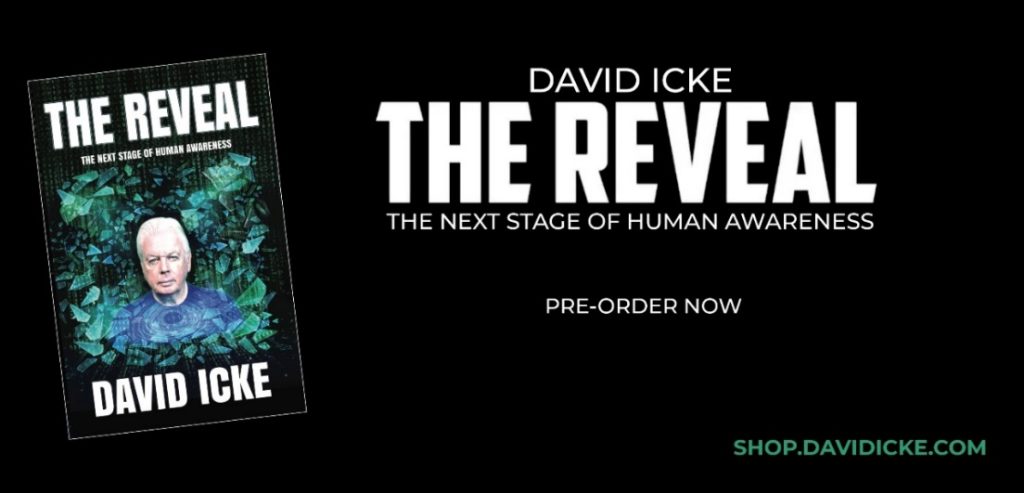William Shakespeare’s character Hamlet reminds us that our understanding of reality is often limited, echoing the sentiments of David Icke, a figure who has become synonymous with conspiracy theories and alternative perspectives on world events. Formerly a professional footballer, member of the Green Party, and broadcaster for the BBC, Icke’s journey has led him to write over 20 books and deliver talks to large audiences globally. Initially ridiculed for speaking out about what he termed “conspiracy theories,” his ideas have gradually gained traction, with many now recognizing Icke as a crucial voice against what he perceives to be a coercive globalist agenda. In acknowledging the breadth of Icke’s work over the last three decades, we see he seeks to broaden our understanding of reality encompassing various systems, including finance, politics, media, and education, and to provoke us into questioning fundamental aspects of our existence and responsibilities as humanity.
In a recent interview series with Brian Rose, the founder of London Real, Icke discusses his latest book, “The Reveal: The Next Stage of Human Awareness.” Their conversations, which began in 2020, have repeatedly gone viral, indicating that Icke’s perspectives resonate widely. Rose considers their latest interaction as one of the most pivotal yet. Icke critiques what he refers to as “Mainstream Alt Media,” suggesting that many so-called alternative media platforms have been co-opted by globalist interests, echoing the infamous Lenin quote about controlling the opposition. Despite this takeover, Icke still expresses respect for certain independent platforms, notably Activist Post, highlighting that some outlets continue to represent genuine alternative narratives against the sprawling corporate media landscape.
The risks associated with Icke’s outspoken nature have manifested significantly; he was banned from entering 26 European countries for two years following controversy surrounding his planned speech at a peace rally in the Netherlands. The ban, instigated by far-left activist groups claiming that he posed a security threat, highlights the contentious nature of his views and the increasing ideological polarization surrounding figures vocal about anti-globalist sentiments. In response to this ban, Icke delivered his speech remotely, garnering a surprisingly large audience online—potentially more than he would have reached at the physical rally. His dialogue emphasized critical issues such as the Dutch government’s agricultural policies and the larger agenda purportedly led by figures like Klaus Schwab at the World Economic Forum, hinting at a broader narrative shaping global governance.
Icke’s work, particularly in relation to events such as 9/11, highlights a historical pattern of manipulation and control through fear. His insights indicate that the foundational justifications for major military actions, like those following the September 11 attacks, were planned ahead of time, as suggested by key policy documents. He asserts that the consequences of these conflicts have been staggering, costing trillions and resulting in significant loss of life. Furthermore, his examination of the War on Terror touches on themes of personal privacy violations, showcasing how fear has been weaponized to justify the erosion of civil liberties in favor of control.
The resurgence of alternative media is a critical theme in Icke’s narrative, as showcased in his discussions with figures such as Michael Benz and Maajid Nawaz. The shift in media control dynamics began to take shape with significant political developments like the election of Donald Trump and Brexit, empowering alternate narratives to thrive. Icke posits that this is part of a broader geopolitical struggle characterized by a clash between centralization and decentralization of power. He acknowledges a transformative moment for humanity where the power dynamics between information dissemination, monetary control, and the cognitive landscape of society are being renegotiated.
In his recent publications and speeches, including upcoming titles in a trilogy preceding “The Reveal,” Icke delves deeper into themes of reality’s hidden nature, pushing for a collective awakening to counter what he describes as an impending AI-driven enslavement of humanity. His outlook extends beyond mere critique; it is a call to action encouraging people to reclaim their agency against what he views as an orchestrated effort to subdue human consciousness. With a finely woven narrative encapsulating both historical and contemporary issues, Icke aims to cultivate a more profound understanding of our agency and potential—signaling, as he believes, the crucial juncture at which humanity stands today. Through his work, Icke aspires not just to inform but to galvanize a movement towards freedom from perceived manipulations rooted in a controlled narrative.

